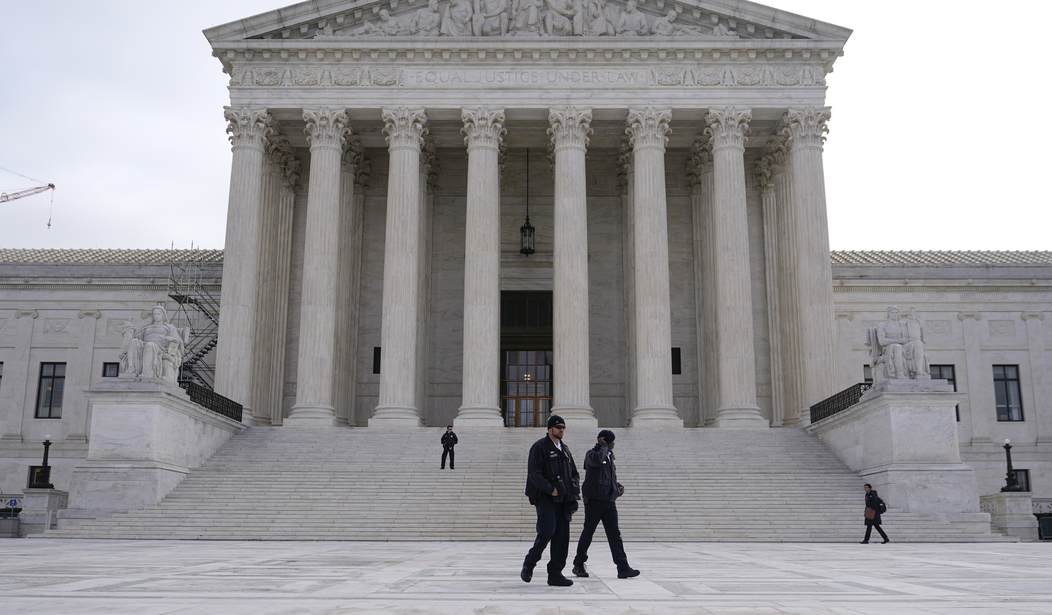Good news from Washington is a rarity. The Biden administration deliberately exerts itself into our daily lives–especially in conservation issues. But there are a couple positive developments to share.
First, there was obviously a major victory for property rights last week.
The Supreme Court ruled 9-0 in favor of plaintiffs Michael and Chantell Sackett in the Sackett vs. EPA decision. Since 2004, the couple has tried to build a home in Idaho. After breaking ground and backfilling their property, the Environmental Protection Agency (EPA) informed them their land contains wetlands and were accused of discharging pollutants into a body categorized as waters of the United States (WOTUS). The agency ordered them to refill the ditch or pay upwards of $40,000 a day. As a result, the justices reversed and remanded the EPA for regulating navigable waters using a significant nexus test under the Clean Water Act.
Senate Majority Leader Chuck Schumer distorted the Sackett vs. EPA decision, tweeting, “This MAGA Supreme Court is continuing to erode our country’s environmental laws. Make no mistake—this ruling will mean more polluted water, and more destruction of wetlands. We’ll keep fighting to protect our waters.”
In April, a North Dakota judge blocked President Biden's own WOTUS rule from going into effect in 24 states. In Congress, 10 House Democrats along with four Democratic senators and newly-independent Krysten Sinema (I-AZ) joined Congressional Republicans to block it. Despite bipartisan opposition to the rule, the veto was overridden by Biden.
Recommended
Much to the chagrin of preservationists, wetlands won’t be destroyed. The Supreme Court, however, made clear: Ditches, trickles, and puddles aren’t navigable waters.
Second, D.C. may be a metaphorical swamp, but the Potomac River ecosystem is alive, well, and yes, thriving. For instance, bald eagles dominate the landscape today.
The nonprofit Potomac Conservancy graded our river with a “B”—up from 2011 when it boasts “D” grade.
The report observed, “Polluted urban runoff is the only growing source of pollution to the Potomac River. Polluted runoff occurs when excess rainwater flows across paved and hardened surfaces and carries street oils, lawn fertilizers, trash, and even diluted sewage directly into local streams.”
It blames factors like legacy pollution, E. Coli, trash and plastics. Sadly, you cannot visit the Potomac River tributaries today without seeing trash and waste close to shore. As a conservationist, it angers me to see such blatant carelessness and disregard for their surroundings.
Where the report lost me was when it invoked the easily disprovable “climate crisis” talking point (because they tow the line) and assigning blame to deforestation. A recent U.N.’s Food and Agriculture Organization (FAO) report conceded, “Between 2015 and 2020, the rate of deforestation was estimated at 10 million hectares per year, down from 16 million hectares per year in the 1990s.” With respect to the United States, there was an average 0.03% annual net gain in forest area between 2010 to 2020.
Nevertheless, should recovery efforts proceed the river is expected to be fully swimmable and fishable (put-and-take fishing) by 2032. Personally speaking, I’ll refrain from these activities until this is clear. One risks mutating into a Swamp Creature–of which there are too many in the D.C. area. Kidding aside, this is a positive development worth celebrating.
Lastly, a rare–and good–bill to boost outdoor recreation opportunities is making its way through Congress.
The America’s Outdoor Recreation Act was first introduced last Congressional session but is gaining steam this term. The bill package aims to “increase and improve outdoor recreation opportunities across the nation while improving infrastructure and driving economic growth in rural communities.” It’s co-sponsored by Senate Energy and Natural Resources Chairman Joe Manchin (D-WV) and Ranking Member John Barrasso (R-WY).
These are the following pieces included in the recreation package: the Outdoor Recreation Act, the Simplifying Outdoor Access for Recreation Act, the Recreation-Not-Red-Tape Act, the Gateway Community and Recreation Enhancement Act, the Federal Interior Lands Media Act, and the Biking on Long-Distance Trails Act.
Manchin’s statement in part reads like this: “I am proud to have worked with Ranking Member Barrasso to reintroduce this legislation that will bolster outdoor recreation activities nationwide, boost rural economies and increase access to recreational opportunities for all Americans.”
If passed, the bill would accomplish the following: expand access to public target shooting ranges, enhance outfitter and guiding permits and clarify filming and photography permit requirements on federal lands, among its many proposals.
Per the Bureau of Economic Analysis, the outdoor recreation economy accounts for 2% of the U.S. gross domestic product (GDP). Firearms, hunting, and fishing expenses fund the bulk of conservation funding –with a whopping $1.6 billion haul pumped back to all 50 states in 2022.
As June heats up, remember this: it’s also Great Outdoors Month.
Get your fish on, discover boating, plan a hiking or camping trip, and recreate responsibly.

























Join the conversation as a VIP Member